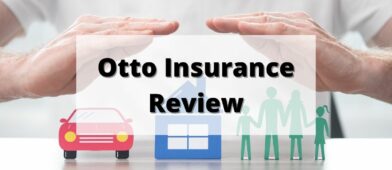There is no average cost of life insurance because each person and situation is unique. The cost of life insurance depends on factors like how much coverage you have and for what time period. It also takes into account things such as your age, overall health, family history, occupation, and hobbies.
In this guide, we’re going to attempt to get as close to an average cost of life insurance as possible. We’ll spell out the variables that make a true average impossible to provide but also presents age- and gender-based rates for two theoretically average people.
The purpose is only to give you a ballpark as a starting point. You’ll need to make adjustments based on your own personal profile, in addition to the amount of coverage you want and the length of the policy.
For simplicity’s sake, and because it’s so much more popular, we’re going to focus exclusively on term life insurance. Cash value life insurance policies, like whole life, have more variables, are more expensive, and much more difficult to calculate.
With those assumptions in mind, let’s get started!
Table of Contents
“Average” Cost of Life Insurance by Age and Gender
Let’s start by presenting a set of numbers that represent a theoretical average. But as you review the table below just keep in mind the premiums quoted are based on people with a perfect health profile.
Your rates may be different, but the table is just for comparison’s sake.
We’ll also reference the quotes going forward in this article.
The table below shows annual premium quotes for a $500,000, 20-year term policy for both a male and a female. Both are non-smokers and in excellent health. The premiums are displayed in increments of five years, to show the effect of age on term life insurance premiums.
The source of the quotes is a company known as PolicyGenius. As an online life insurance aggregator, they’re one of the very best sources for term life insurance policies, since you can get quotes from multiple providers by completing a single online application.
| Age | Male | Female |
|---|---|---|
| 25 | $220.55 | $180.00 |
| 30 | $224.25 | $190.00 |
| 35 | $240.00 | $205.00 |
| 40 | $320.00 | $275.00 |
| 45 | $515.00 | $415.00 |
| 50 | $795.00 | $615.00 |
| 55 | $1,275.00 | $930.00 |
| 60 | $2,170.00 | $1,666.35 |
| 65 | $4,115.00 | $3,031.75 |
If you’d like to get your own quotes here are our top recommended online life insurance companies.
How Life Insurance Premiums are Calculated
This gets to the root of why it’s so difficult to come up with an average cost of life insurance. It literally takes a matrix to determine exactly what you’ll pay for any given policy.
But below are the basic factors that go into determining your premium:
Policy Amount
You’ll obviously pay more for a $500,000 policy than you will for a $250,000 policy. But what’s interesting is that the difference in premiums between the two isn’t proportionate.
For example, a 35-year-old woman purchasing a 20-year term life insurance policy will pay $137.50 per year for $250,000 in coverage, and $205 for a $500,000 policy.
Notice that while the death benefit is twice as high on the larger policy, the premium is not. In fact, the premium increases by about 50% even though the death benefit doubles.
That’s a common occurrence when it comes to purchasing life insurance. You’ll pay less for a larger death benefit than you will on a smaller one on a per thousand basis. That’s because while the death benefit on the policy may double, your risk profile is the same in either case.
If you are wondering how much life insurance you need – here’s our guide for that.
Term Length
The term of your policy will also have a significant impact on your premium.
Once again using an example of a 35-year-old woman purchasing a $500,000 term policy, the premium for a 20-year policy will be $205.
It will drop to $165 for a 15-year policy, and $140 per year on a 10-year policy. The reason for the lower premium is the reduced likelihood of death within the shorter-term policy.
At the opposite end of the spectrum, a 25-year policy will carry a $285 premium, 30 years will be $350, and 40 years will be $613. The longer the term of the policy, the greater the likelihood of the applicant dying within the stated term.
Insurance companies adjust for this risk by charging a higher premium on longer-term policies.
Gender
You’ve probably noticed in the table that premiums for women are universally lower than they are for men. That’s not an accident, nor is it an example of gender bias.
The average life expectancy at birth for women in America is 81.1, versus 76.1 for men. That’s a difference of a full five years, which isn’t lost on the insurance companies.
Especially when you’re talking about term life insurance, the likelihood of the company paying the death benefit is lower the longer you’re likely to live. Since women commonly outlive men, their life insurance premiums are commensurately lower.
Age
Carefully examine the table of premium quotes above, and you’ll see that age has a major impact on life insurance premiums.
That isn’t much of an issue for younger applicants. For example, notice that while a 25-year-old male will pay $220.55 for a 20-year $500,000 policy, the premium rises only slightly to $224.25 for a 30-year-old, and $240 for a 35-year-old.
But notice that between 35 and 40 the premium increases by 33%. The increase itself rises with each five-year block.
The increase in premium from 50 to 55 is more than 50%, well over 80% from 55 to 60, and nearly doubles between 60 and 65.
That points out a very important strategy with life insurance: buy it as early in life as possible – even if you don’t think you need it!
Buying life insurance early gives you the premium price break based on age, but that’s not the only benefit. As you age your likelihood of developing a chronic health condition increases. There are many health issues that significantly increase the cost of life insurance and some that even cause you to become uninsurable – meaning you can’t purchase life insurance at all.
Health
This is the factor in calculating life insurance premiums that is the most technical because it contains the most variables.
Considerations include:
- Weight-to-height ratio: This is determined by your body mass index (BMI). It can indicate you are underweight, normal weight, overweight, obese, or morbidly obese. The higher your BMI, the higher your premium will be.
- Your health: This will include current or previous bouts with alcohol abuse, anxiety, asthma, cancer, depression, diabetes, drug abuse, heart disease, high cholesterol, hypertension, sleep apnea, stroke, and other serious conditions. The more recent the episode, the more significantly it will weigh on your premium.
- Family health history: The insurance company will want to know if you have any parents or siblings who have experienced cancer, diabetes, kidney disease, cardiovascular disease, and other major health conditions before the age of 70.
- Your driving record: A history of DUI/DWI is a major factor. The company will also want to know if you have had your license suspended or revoked, or if you have more than one moving violation or at-fault accident in the past several years.
- Your credit history: Though insurance companies don’t look at your regular FICO Score, they do consider major, recent events, like bankruptcy, foreclosure, tax liens, and a pattern of late or unpaid bills.
- Occupation: Certain occupations are considered to be high risk. These include police, firefighters, roofers, lumberjacks, fishers, construction workers, and even traveling salespeople, among other occupations.
- Your hobbies: Yes, even certain hobbies are considered to be high risk, and will have an impact on your premium. These include skydiving, scuba diving, mountain climbing, backcountry skiing, racing, and a fairly long list of other hobbies.
Some of this information will be requested for initial quote purposes. But once you proceed with an application for an actual policy, each of these questions will be asked. And your answers will affect the premium you’ll pay.
Warning: Never Lie on Your Life Insurance Application!
Do you know how technology is increasing the amount of information available about you? The same thing is true when it comes to applying for life insurance.
Life insurance companies rely on online databases to gather information about you. One popular source is the MIB. It’s like a credit repository except it accumulates health-related information. It contains medical information about you, including hospitalizations, prescriptions, therapies, and any treatments you may have received in the past. You can request your MIB Underwriting Services Consumer File and check it for accuracy, we recommend reviewing these specialty consumer reports regularly.
Insurance companies will also check other information sources, such as your state DMV records. That’s where they’ll determine your driving history.
Though you’ll be asked the same questions on your application, the third-party source information is used to validate what you provide. If those third parties disclose information you’ve omitted, your application may be declined.
But that’s not the worst possible outcome. If you fail to disclose a health condition and you die from that condition after taking your policy, the company can refuse to pay the death benefit, claiming insurance fraud.
Should that happen, the most your beneficiaries will receive is a return of the premiums paid on a policy. But the death benefit amount won’t be paid.
Smoker vs. Non-Smoker
For the average person, smoking is the single biggest factor determining life insurance premiums. Premiums for smokers aren’t just higher than for non-smokers, but fundamentally higher.
For example, a smoker will typically pay between two and three times as much in premium for the same amount of life insurance as a non-smoker. That means a premium of $500 per year for a non-smoker will cost a smoker between $1,000 and $1,500 for an equivalent amount of coverage.
There are some complications on this front as well. Smokers often have a different idea than insurance companies as to what constitutes smoker status. For example, someone who smokes one pack of cigarettes per week may consider themselves to be a non-smoker, perhaps because they don’t smoke every day.
But the insurance company will disagree. If you smoke even two cigarettes per month they’re likely to classify you as a smoker.
Still another area of dispute is vaping (e-cigarettes). Many vapers don’t think of themselves as being smokers, but life insurance companies don’t make a distinction. Since many vaper “juices” contain nicotine, life insurance companies typically consider vaping as smoking, and charge higher rates.
It may be possible to reduce your smoker classification by participating in a smoking cessation program. However, the program must be approved by the life insurance company, and you are generally required to be smoke-/vape-free for a minimum of two years before you’ll get the premium reduction.
I once heard a story about a gentleman who didn’t smoke but lived with a smoker. His bloodwork showed that he did smoke due to the second-hand smoke he inhaled on a regular basis. He was charged a higher premium due to this.
Eventually, he moved and after a period of time, he asked for new bloodwork and an adjustment to his rates. When his bloodwork showed no signs of being a smoker his rates were reduced.
The bottom line is that smoking is a premium game-changer when it comes to life insurance!
✨Related: Largest Life Insurance Companies in the U.S.
What Can I Do to Lower My Life Insurance Premium?
If you’re a non-smoker, at a normal weight and with no major health conditions – and none in your family history – there’s not much you can do, and not much you need to do. Your premiums will be based on your age at the time of application, which is a factor you have no control over.
But some of the more obvious steps you can take – if they apply – include the following:
- If you’re a smoker, quit! It’s probably the single biggest premium-buster in your personal profile. But you’ll need to join an approved smoking cession program and be smoke-free for at least two years. Fortunately, some life insurance companies will reduce your premium after completion of the program.
- If you’re overweight, do what you need to do to get into a normal weight range. Again, a current life insurance provider may reduce your premium if you lose weight and keep it off for a specific amount of time.
- If you have motor vehicle infractions, come clean for the next several years. It can be anywhere from three to five years, depending on the insurance company.
- If you do have one or more significant health conditions, do what you can to make improvements. Life insurance companies take a more favorable view of well-controlled health conditions than they do of those that aren’t.
There’s one more strategy you can use to get the lowest premium possible, and that’s to apply for coverage now. That’s because you’re younger today than you’ll be at any time in the future. And since age affects premiums, you’ll keep yours to a minimum by applying now.



